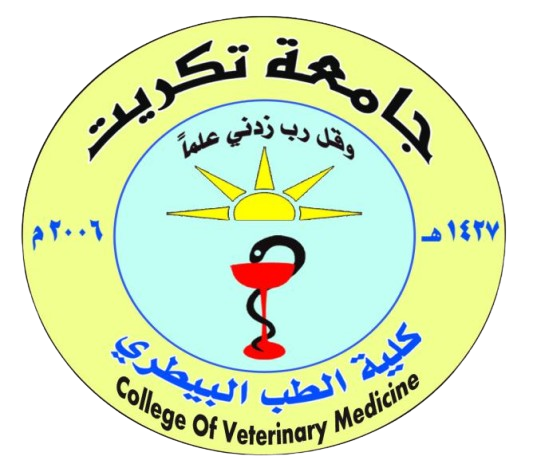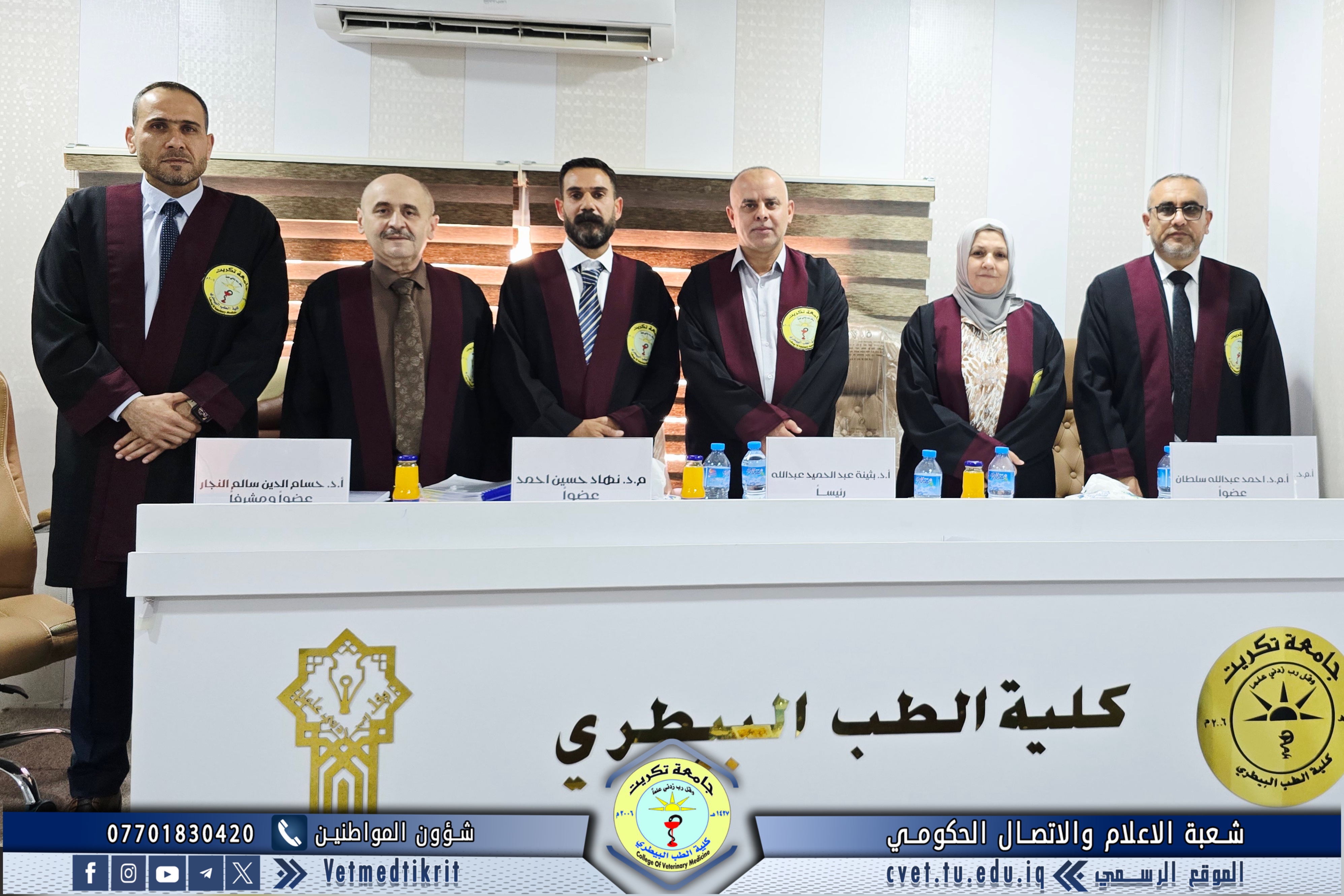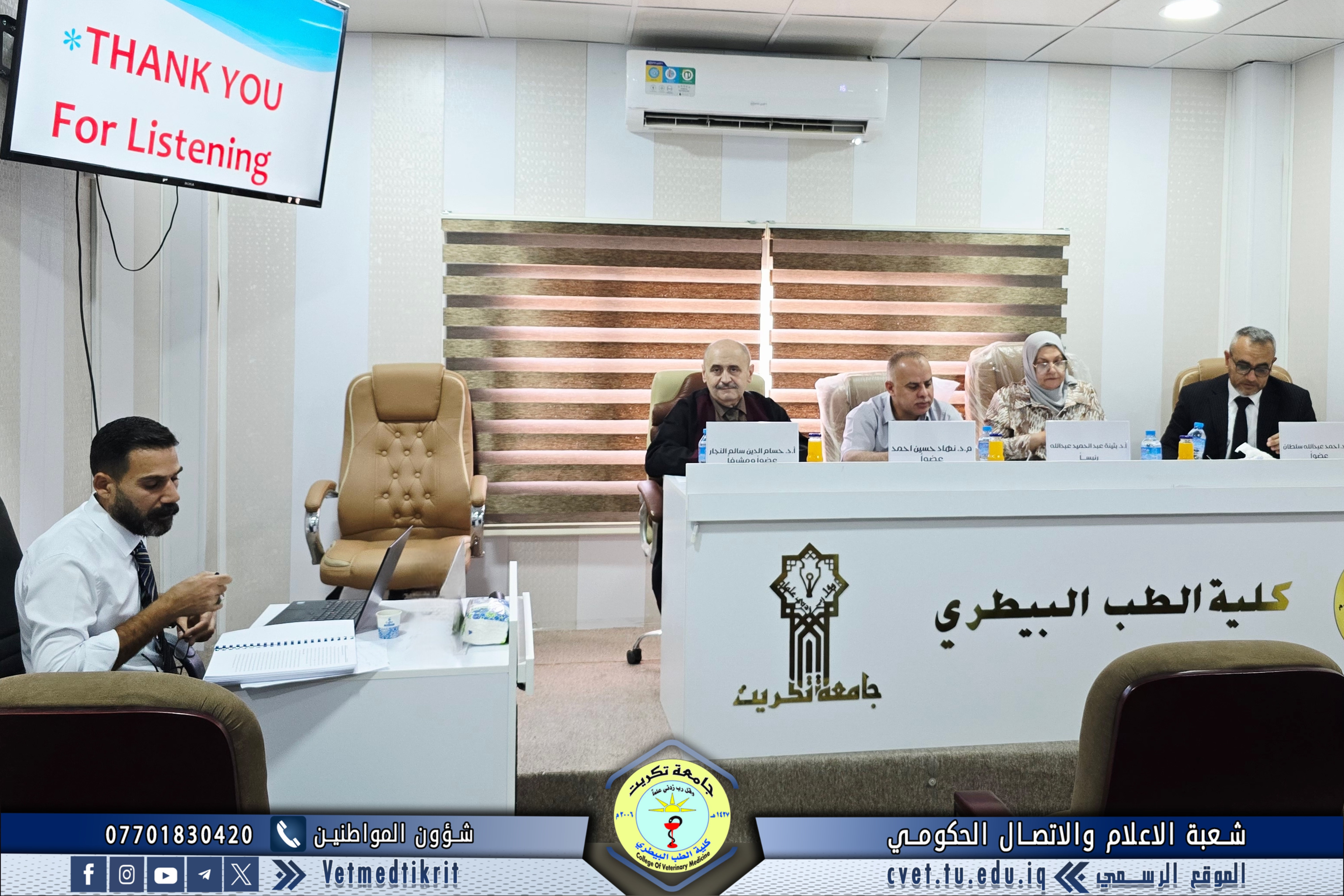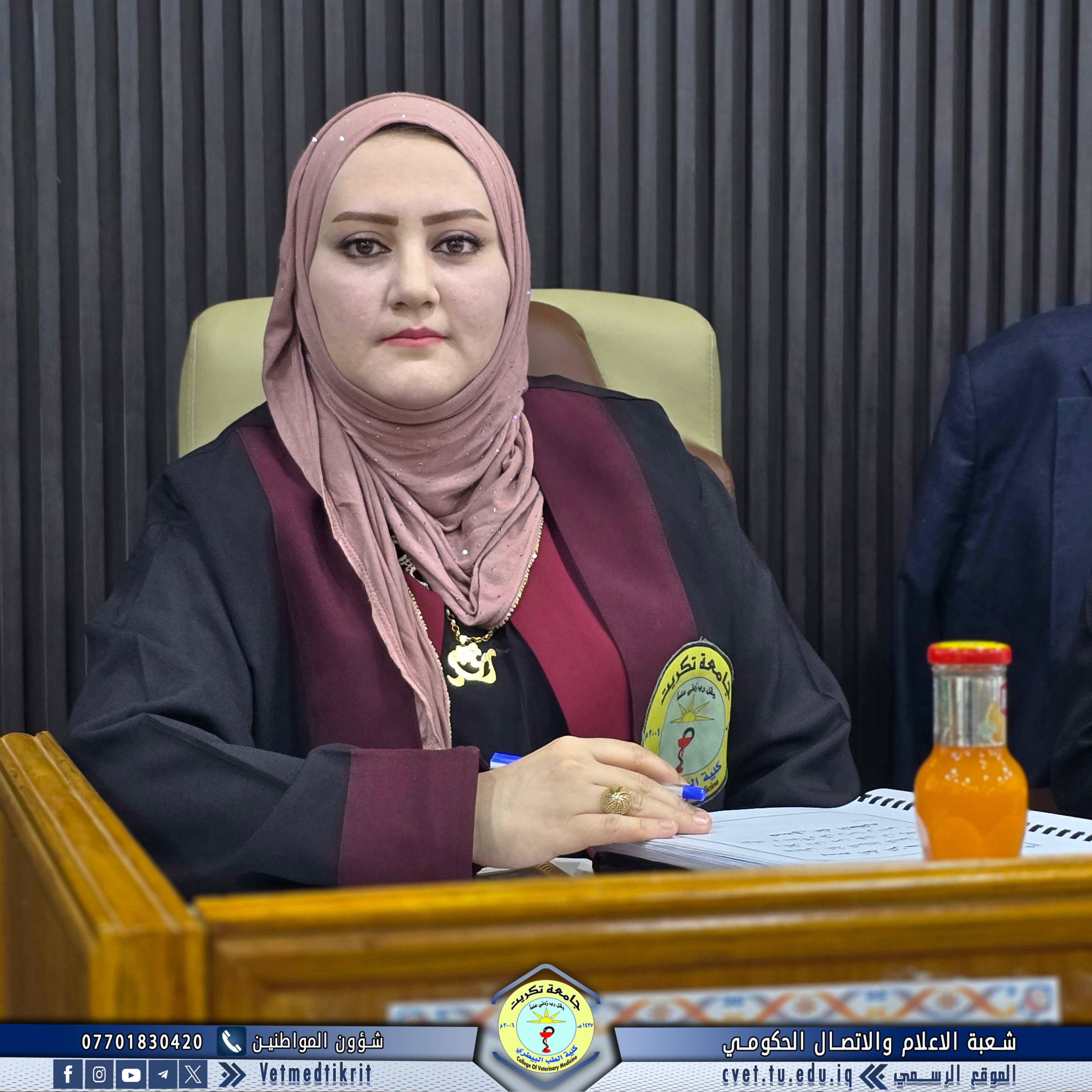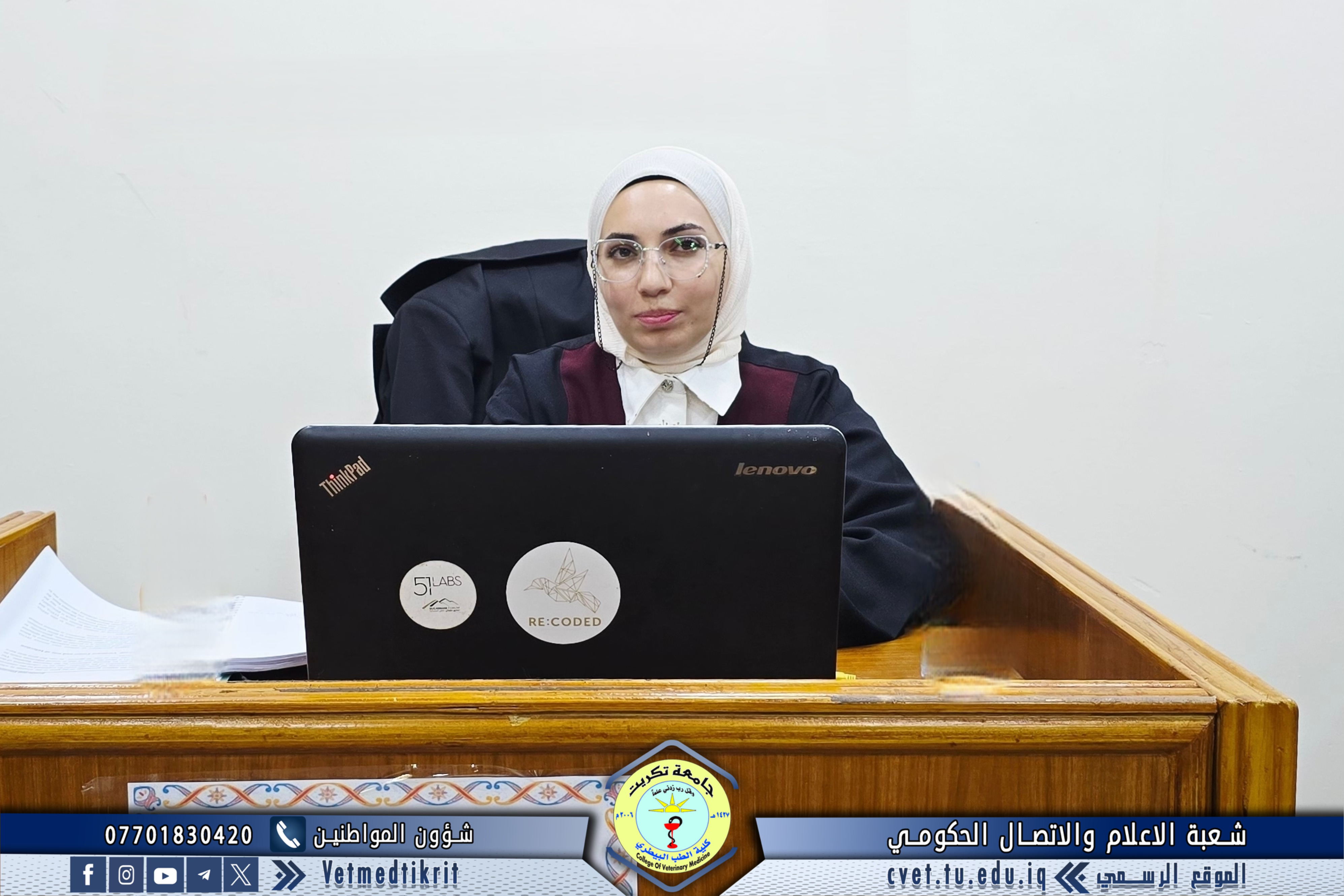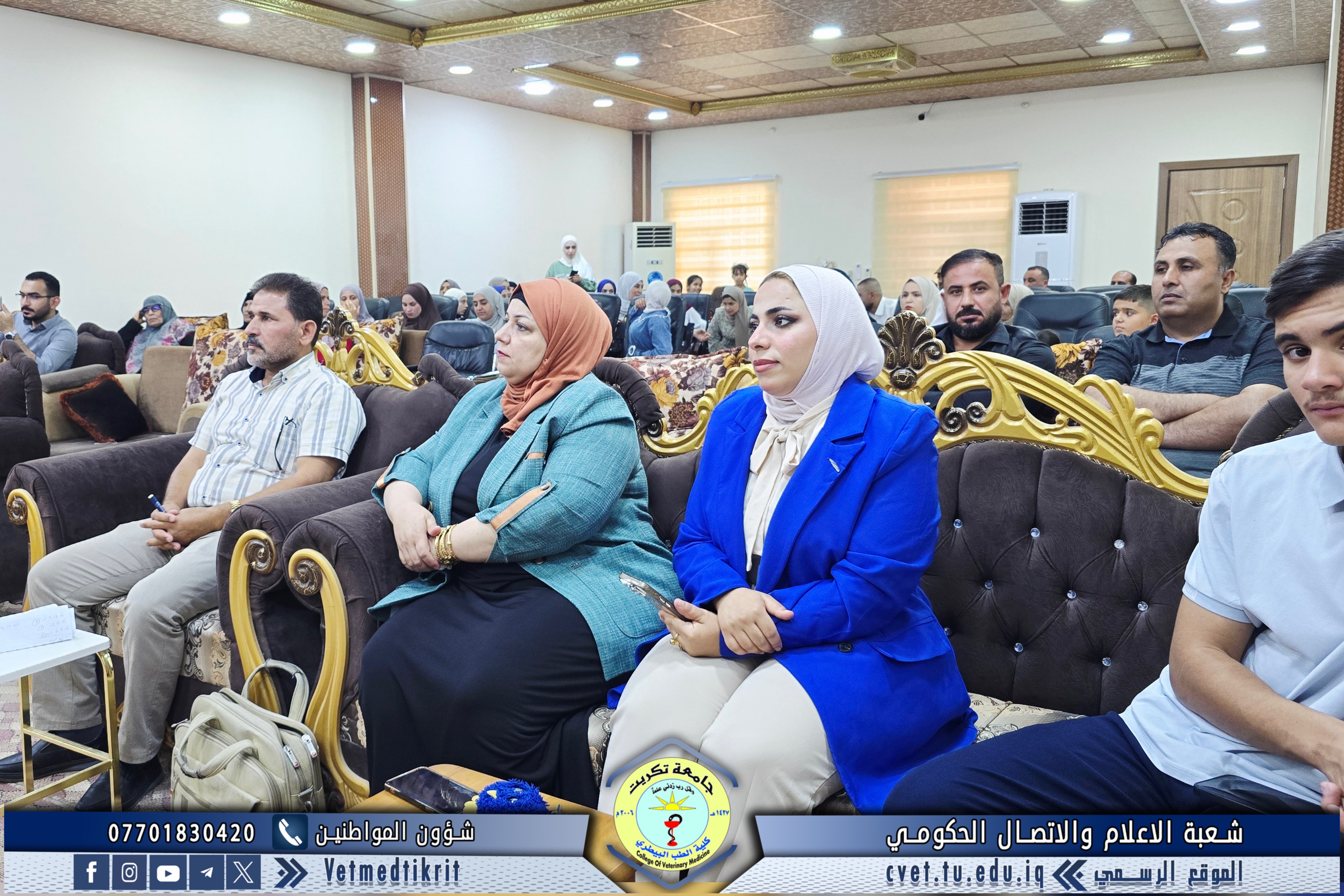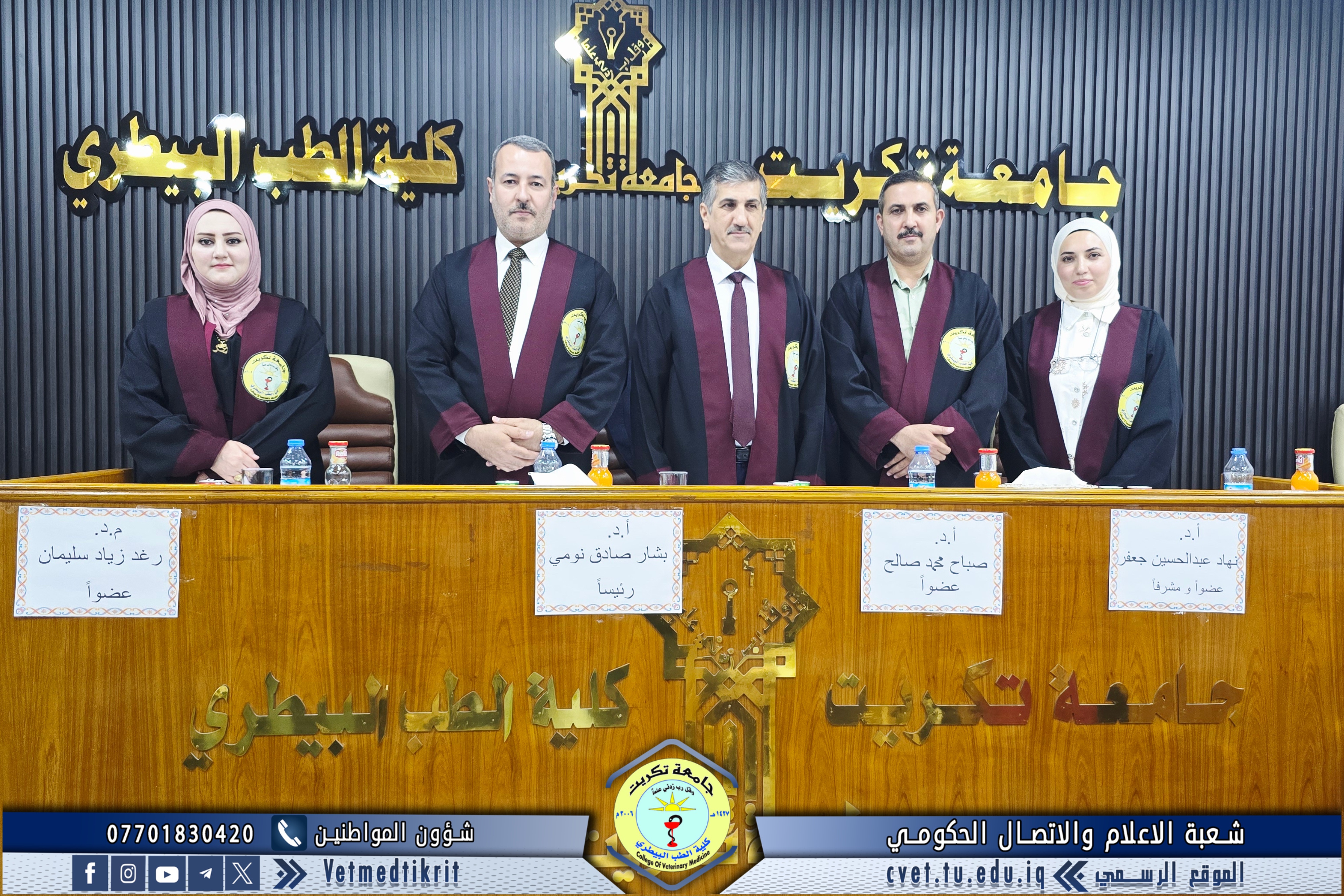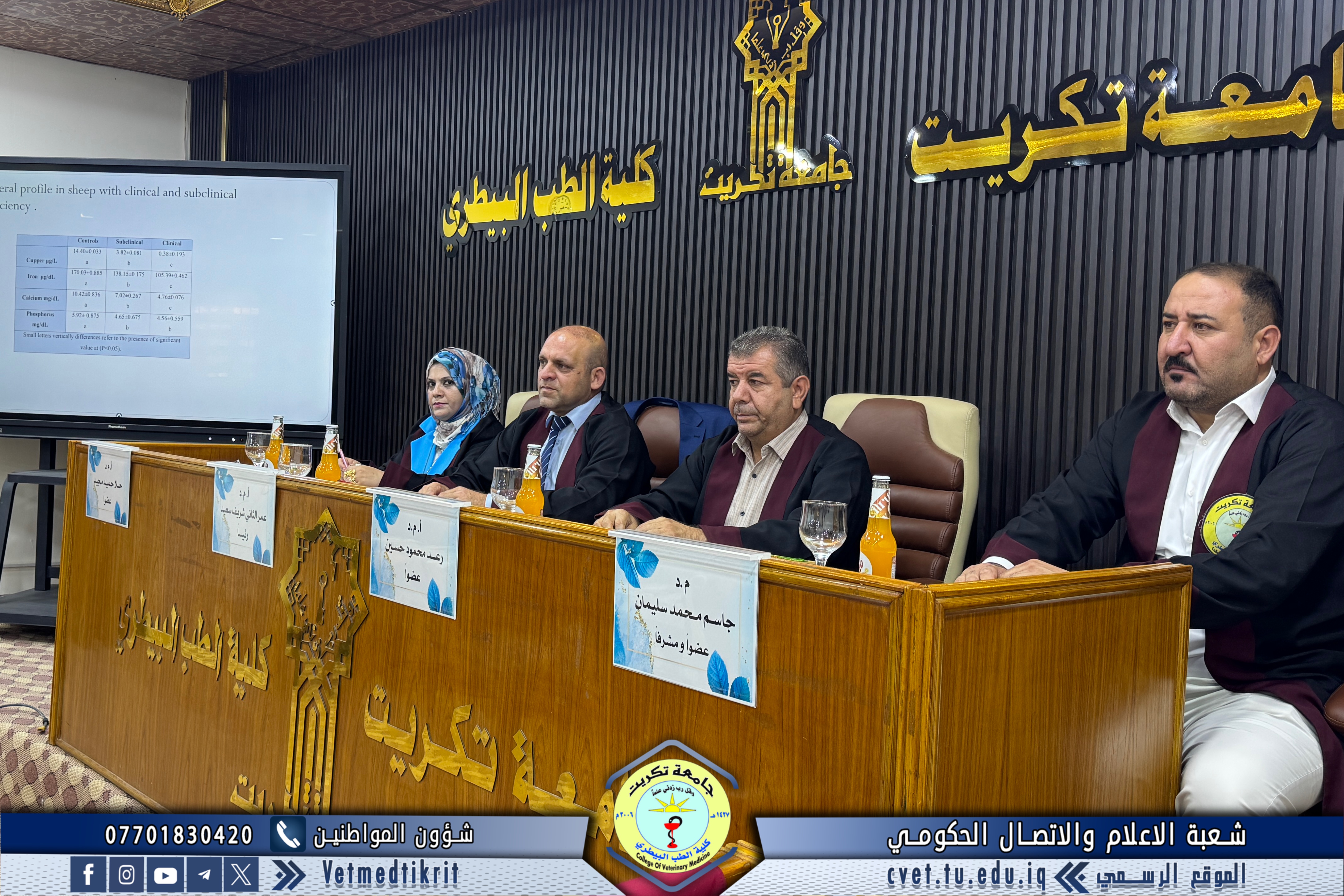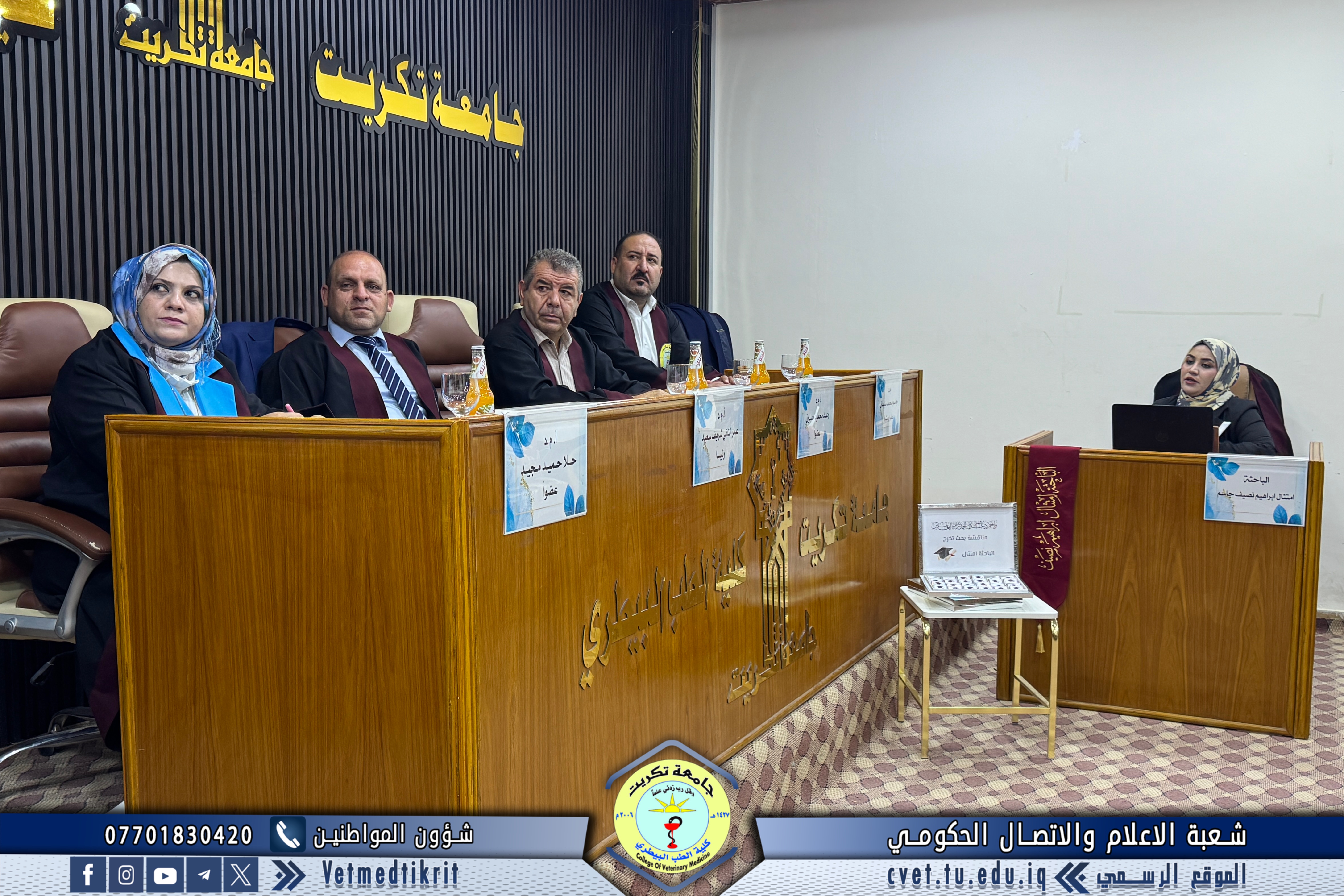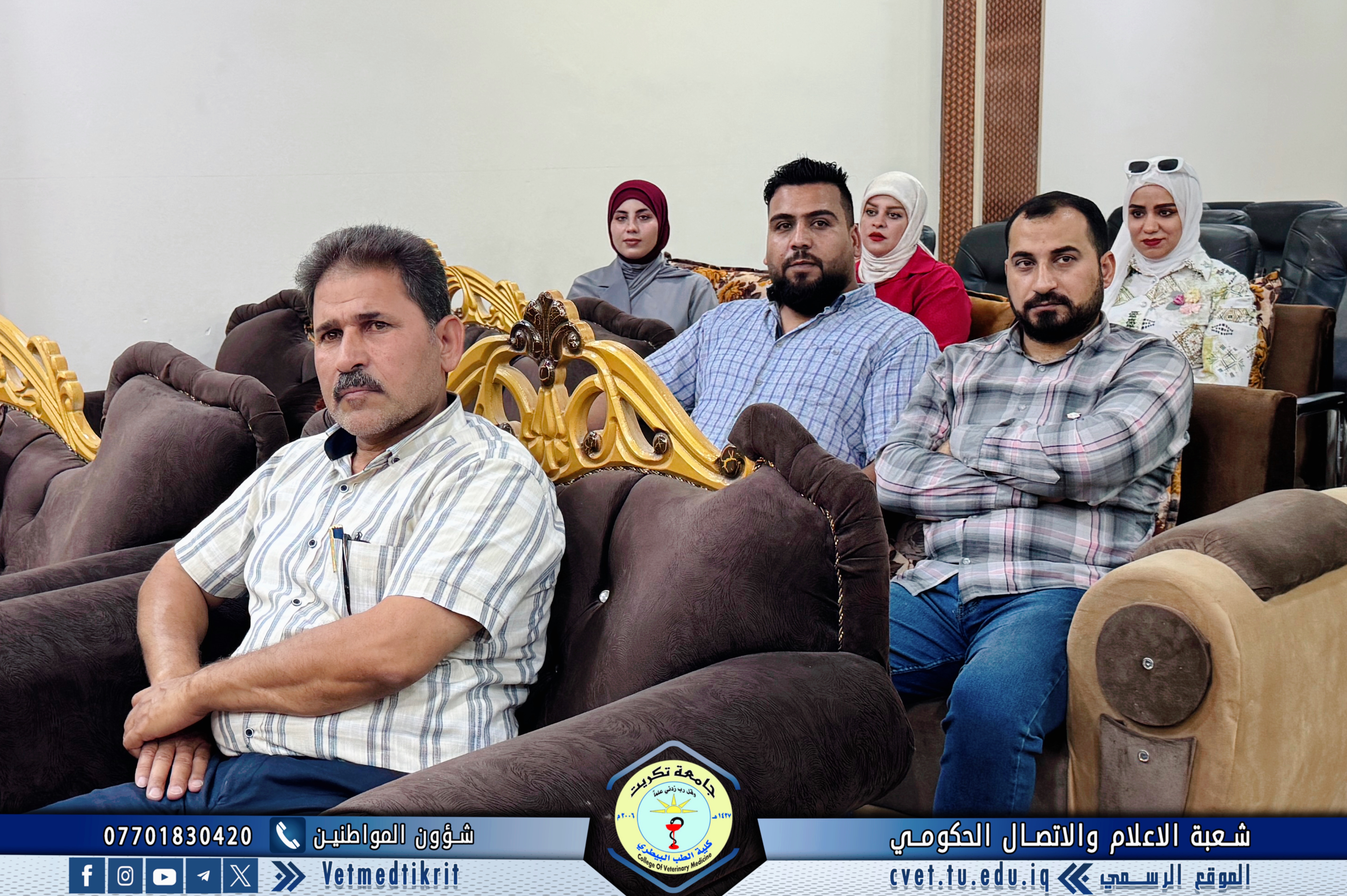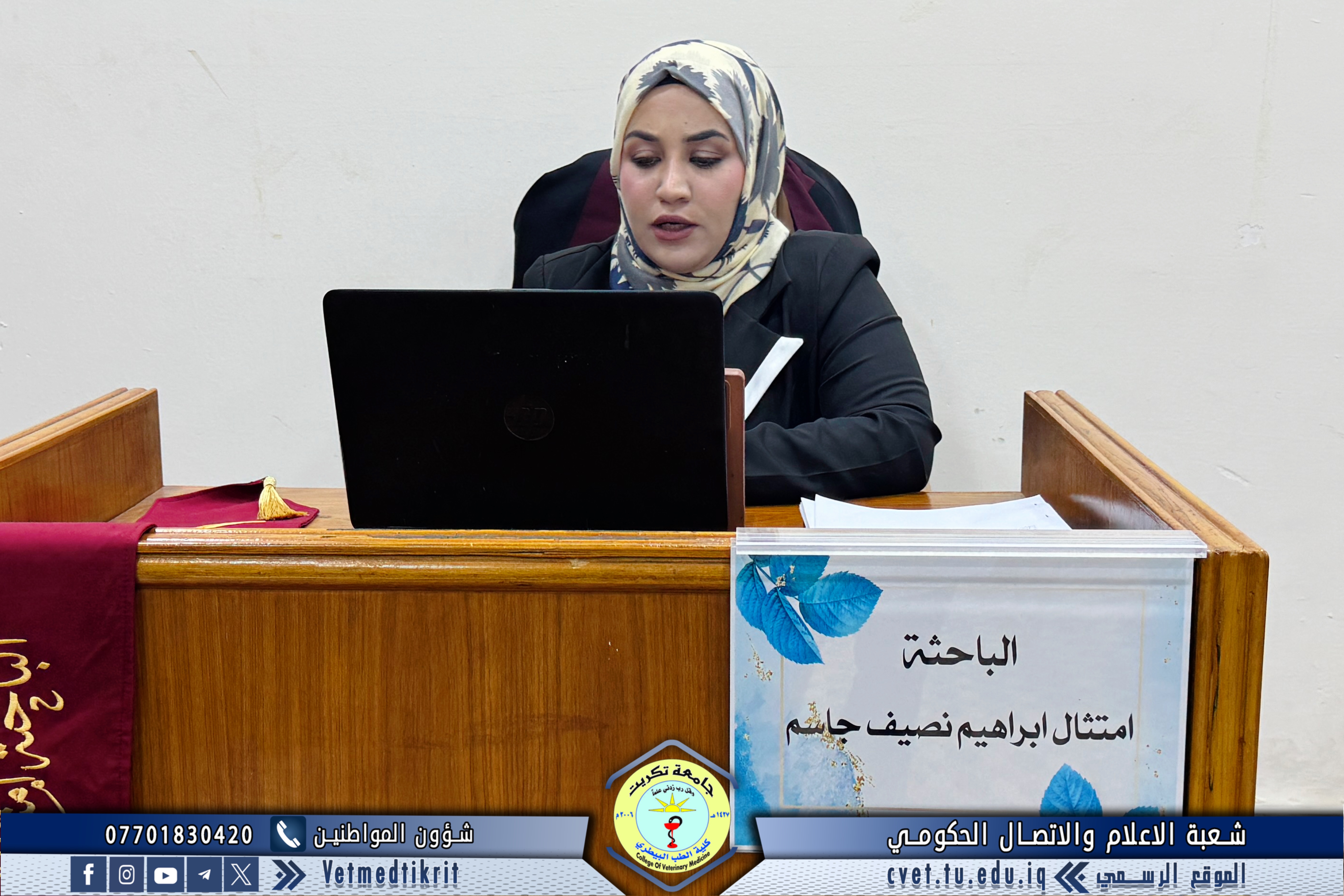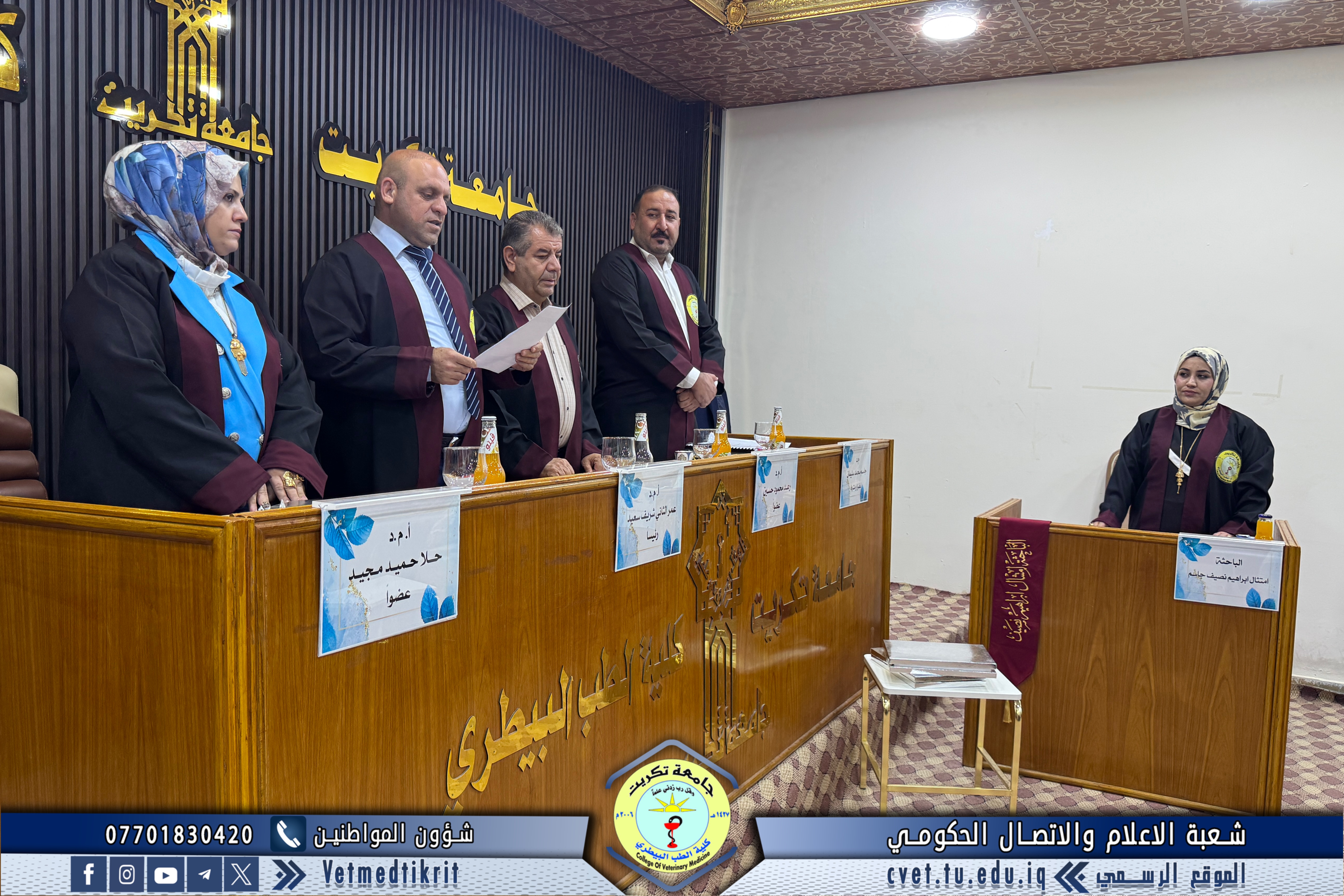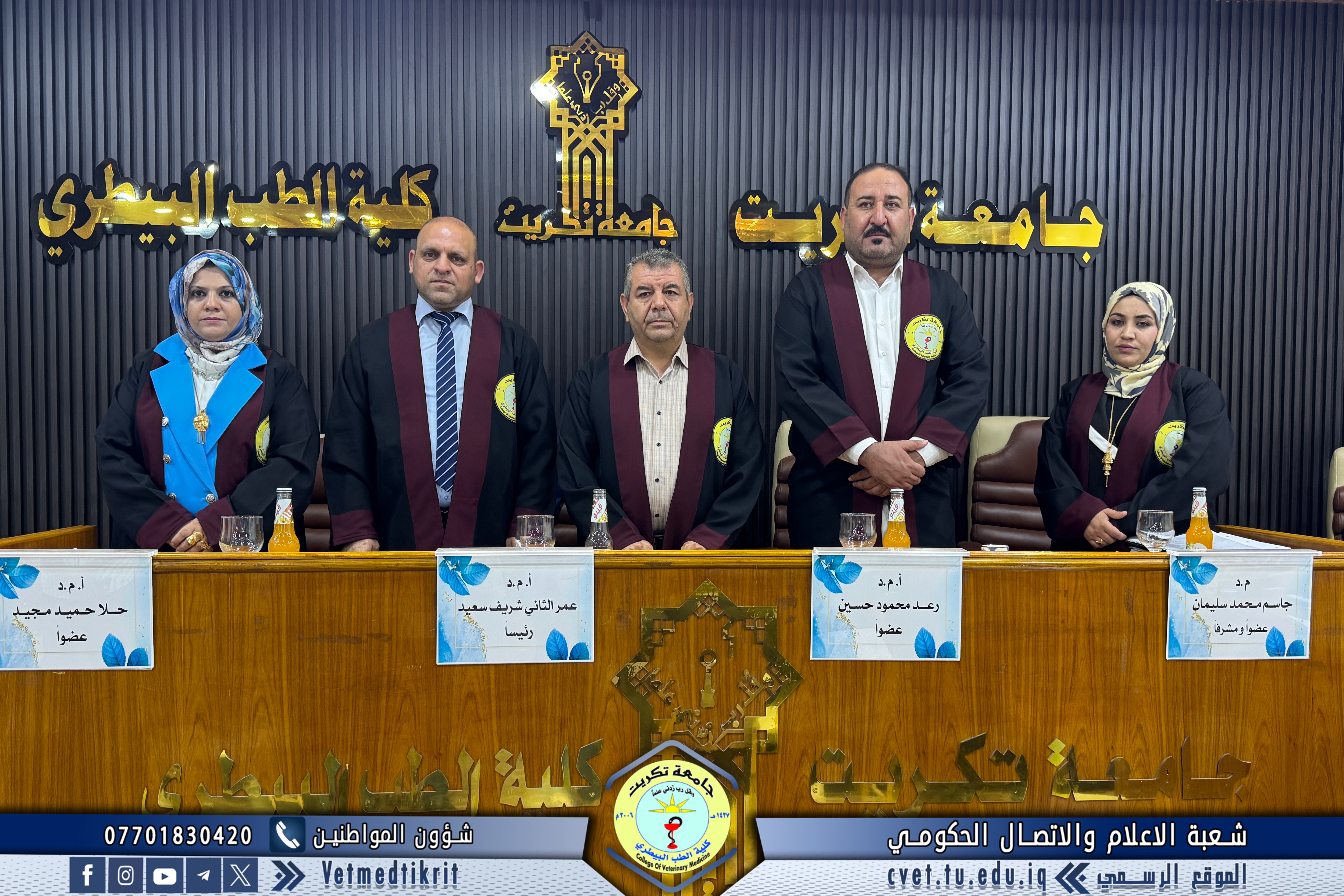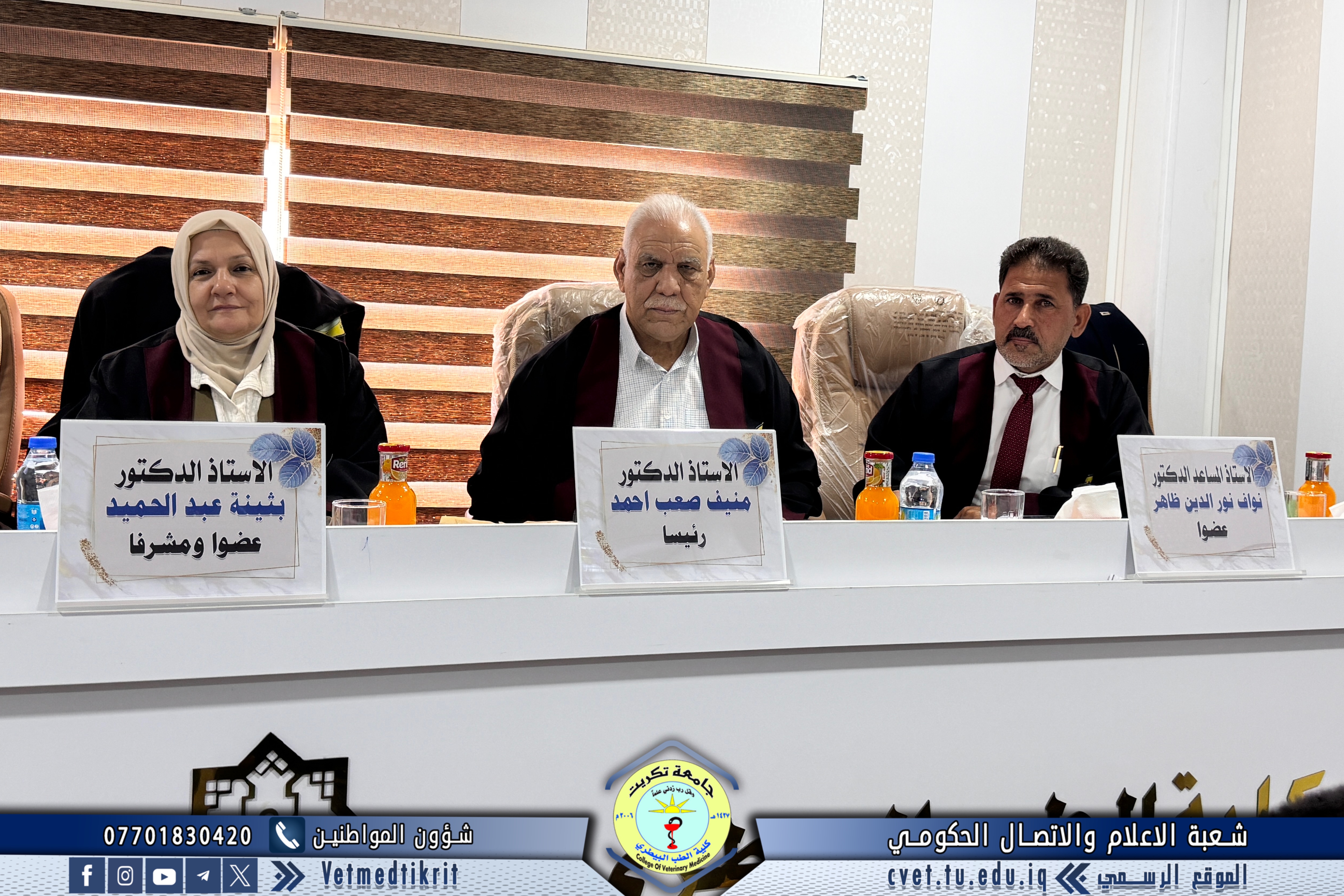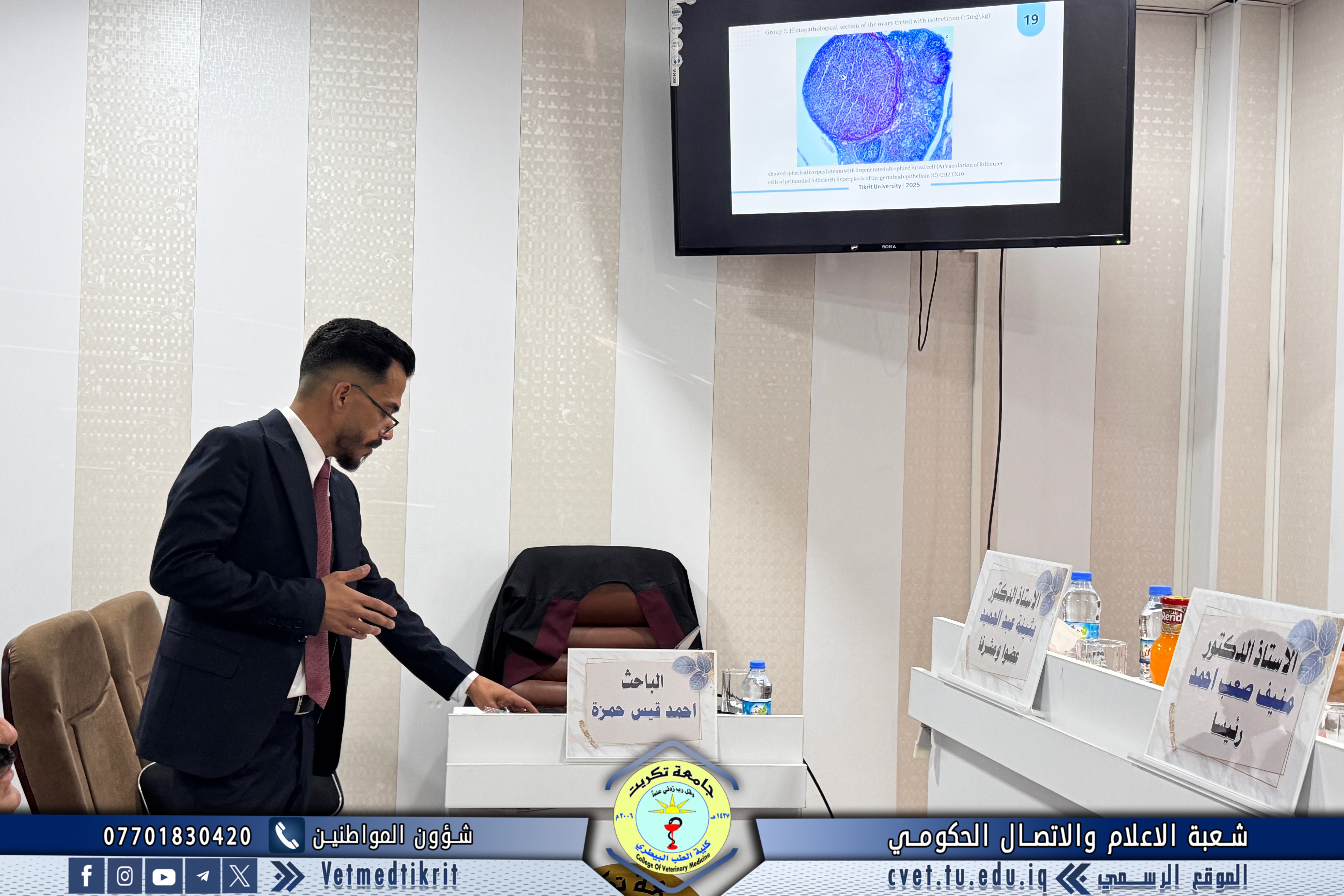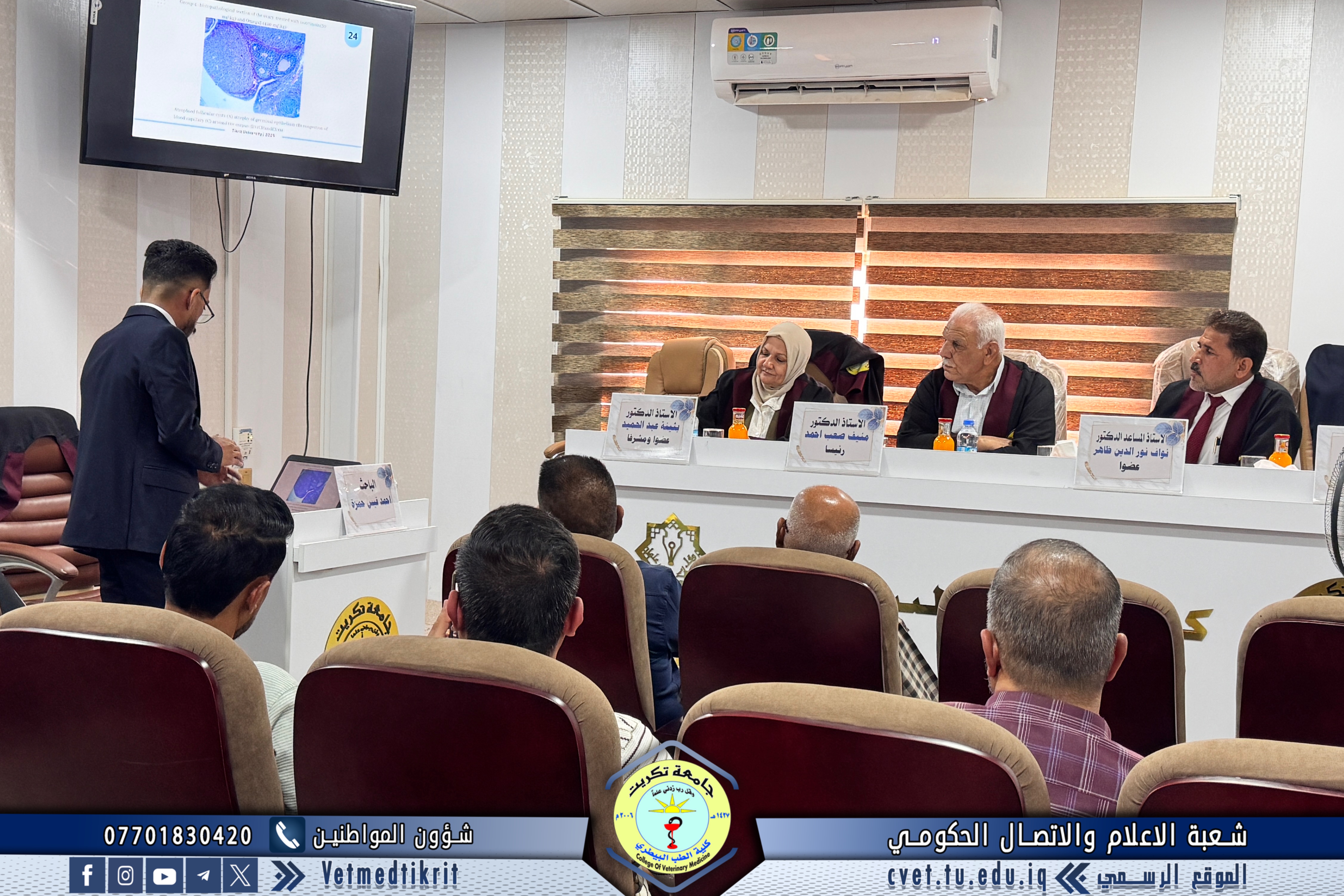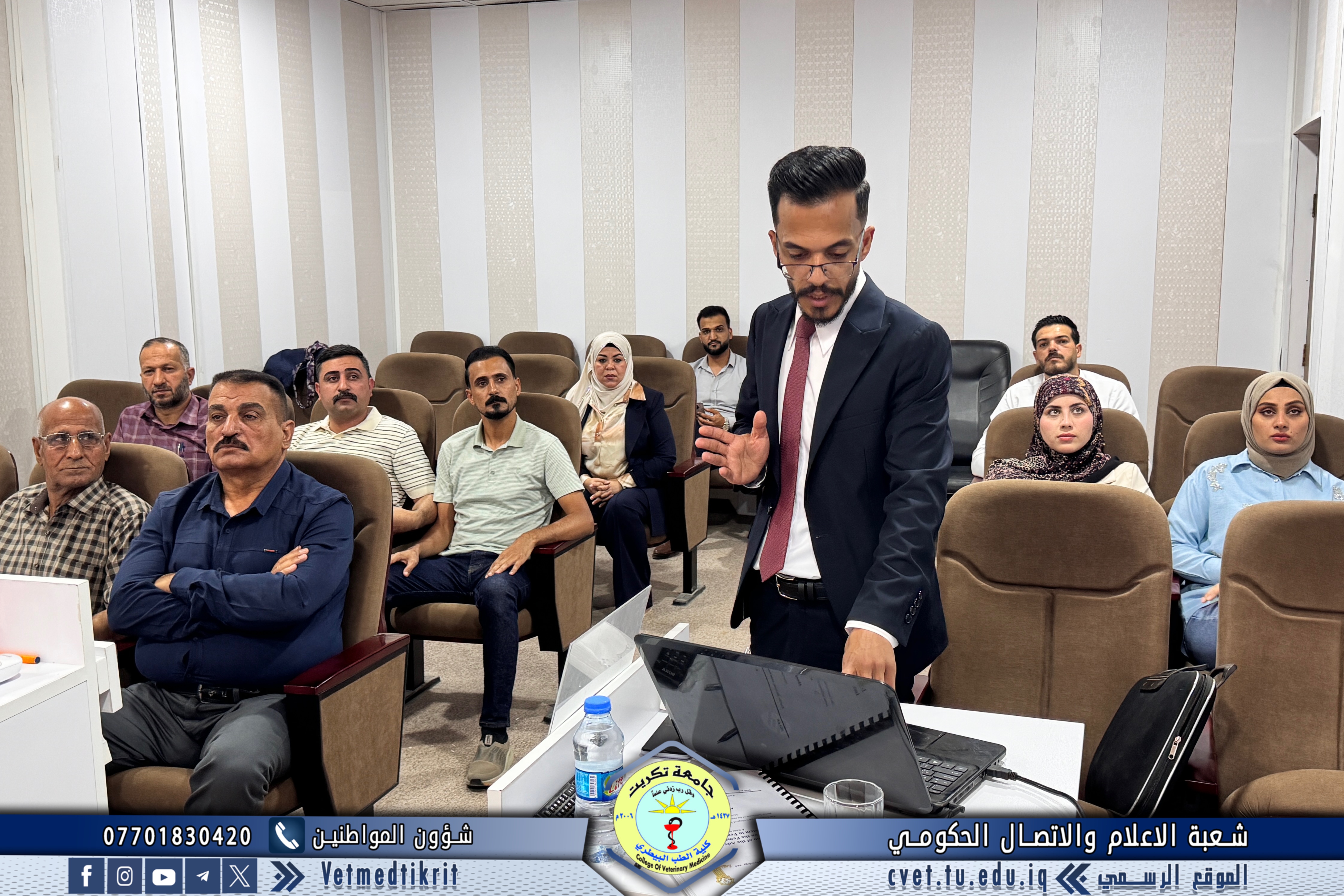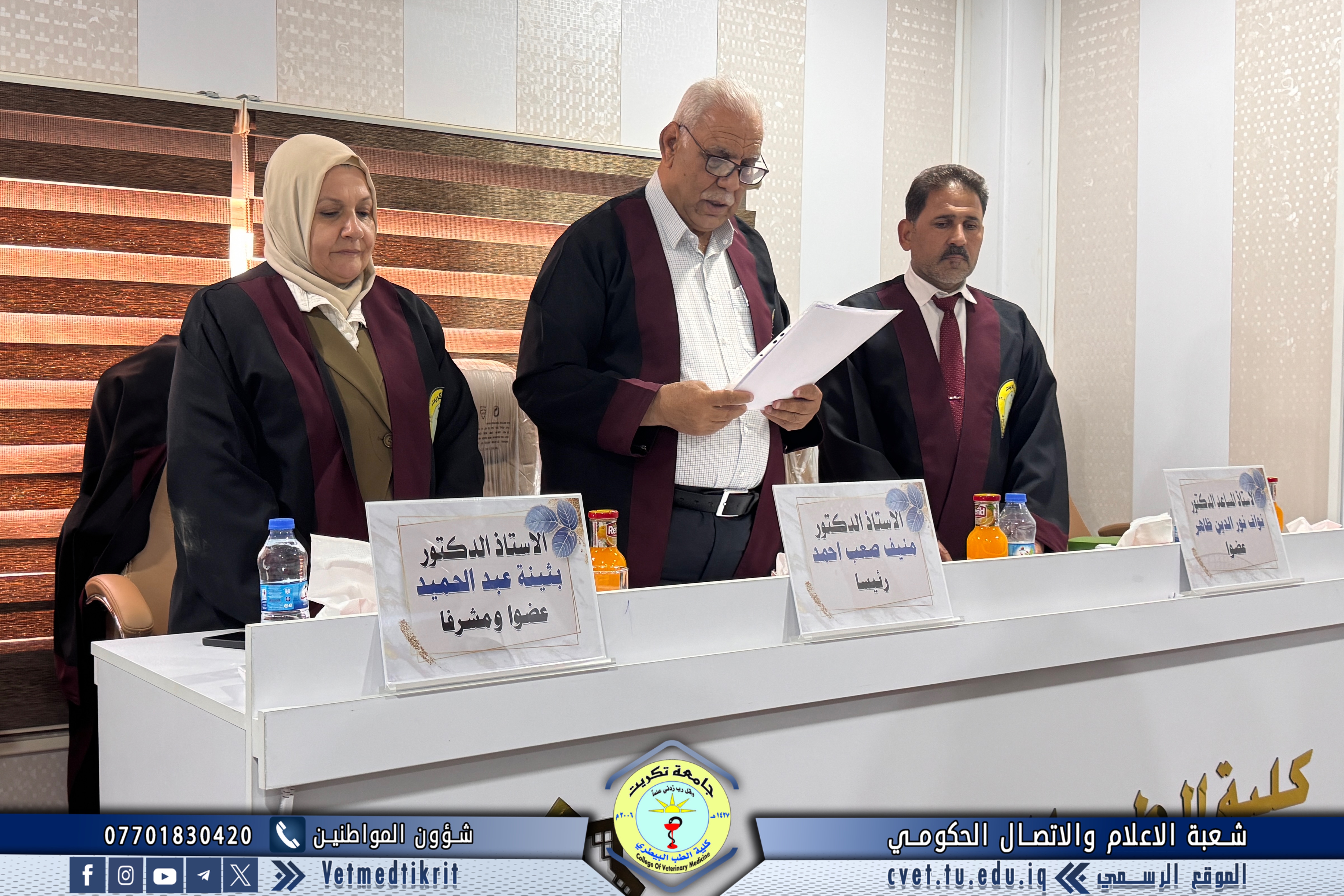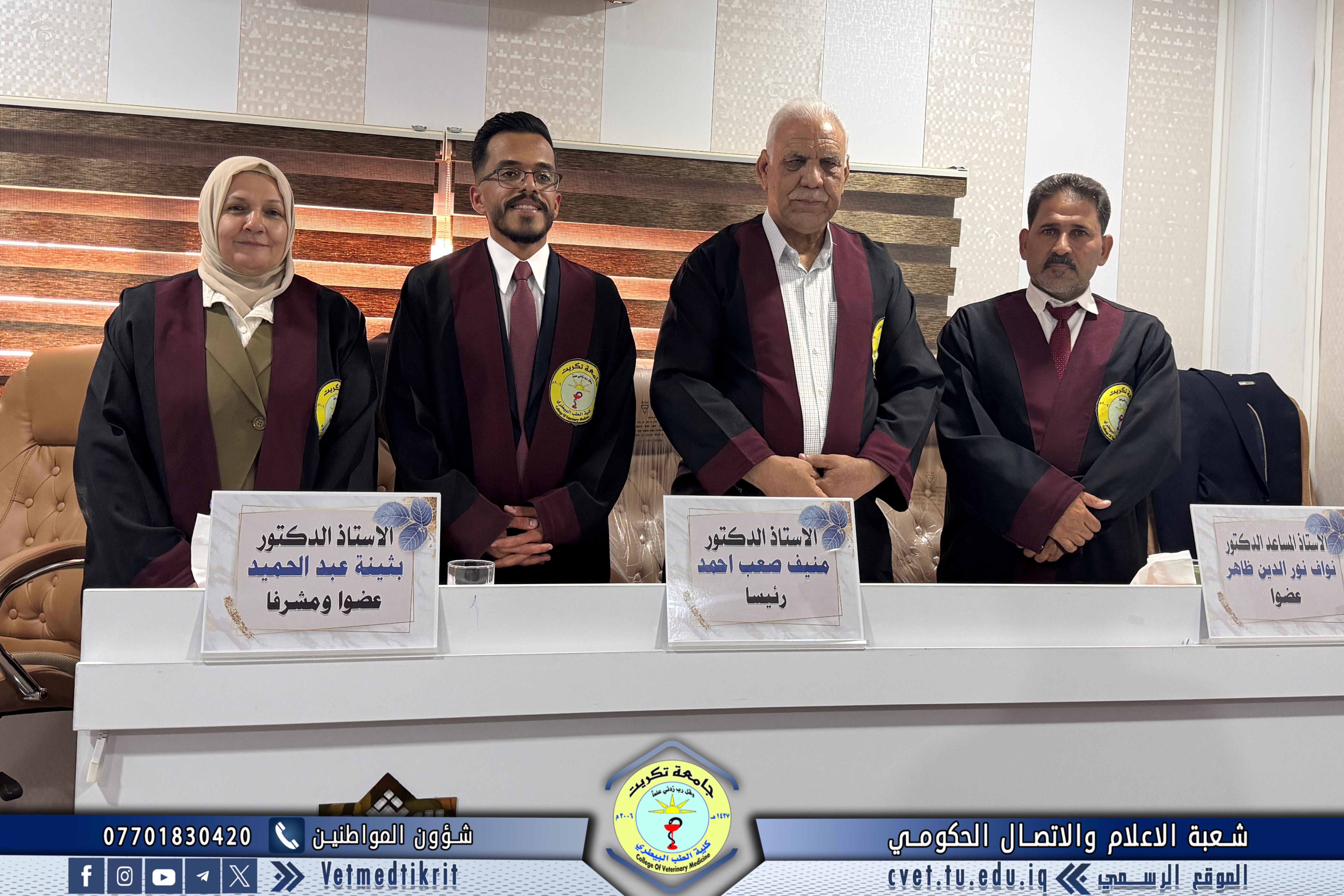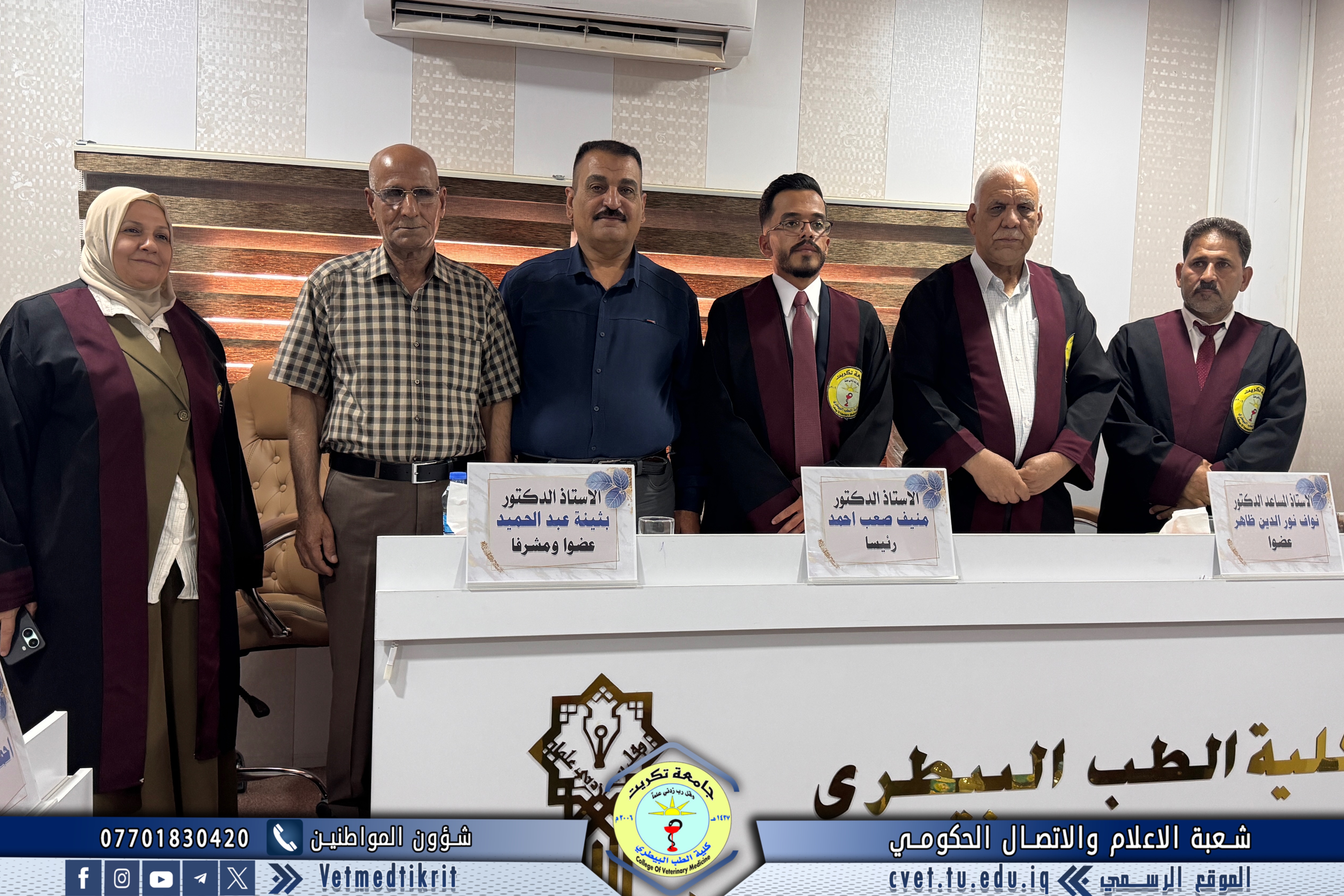By the grace of God, the Master's thesis entitled "Evaluation of the Nanoform of the Pineapple Fruit with Traditional Treatment (Sulfasalazine) in the Treatment of Chemically Induced Colitis in Male Rats: A Comparative Study" was discussed by the student (Marywan Kamel Faris) in the field of (Veterinary Pharmacology) at the College of Veterinary Medicine at Tikrit University. The discussion committee consisted of:
- Professor Dr. Buthaina Abdul Hamid Abdullah / Specialization in Pharmacology / Tikrit University - College of Veterinary Medicine / Chair
- Assistant Professor Dr. Ahmed Abdullah Sultan / Specialization in Animal Diseases / Tikrit University - College of Veterinary Medicine / Member
- Assistant Professor Dr. Nihad Hussein Ahmed / Specialization in Pharmacology / Tikrit University - College of Pharmacy / Member
- Professor Dr. Hussam Al-Din Salem Mohammed / Specialization in Pharmacology / Tikrit University - College of Medicine / Member and Supervisor
- Assistant Professor Dr. Hassan Hadi Khorshid / Specialization in Animal Diseases / Tikrit University - College of Veterinary Medicine / Member and Supervisor
The abstract of the thesis was as follows: Nanotechnology has made it possible to deliver drugs to specific cells. The primary goal of drug administration is to reduce the side effects or harmful effects of the drug, which also leads to a reduction in the number of doses required and a decrease in the cost of treatment in the future.
Inflammatory bowel disease (IBD) is a chronic inflammatory condition affecting the gastrointestinal tract (IBD). Treatment options are limited due to the side effects of conventional treatments such as sulfasalazine. Nanotechnology and plant-based therapies may offer promising potential for more effective and safer future treatments. Carob is a medicinal plant rich in bioactive compounds. Carob has strong anti-inflammatory and antioxidant properties, making it a potential candidate for the treatment of IBD. This study aimed to evaluate the efficacy of zinc oxide nanoparticles prepared from the aqueous extract of carob, compared to the drug sulfasalazine, in the treatment of chemically induced colitis in rats. Sixty-nine male albino rats were randomly divided into six groups: a positive control group, in which colitis was induced using 4% acetic acid via intrarectal injection; a negative control group, in which colitis was induced using acetic acid; a negative control group, in which colitis was induced using acetic acid; and a treatment group, in which colitis was induced using acetic acid. Each group received the following treatments: a group treated with an aqueous extract of the carob fruit; a group treated with zinc oxide nanoparticles prepared from the aqueous extract of the carob plant; a group treated with a combination of sulfasalazine and zinc oxide nanoparticles from the extract; and a group treated with sulfasalazine alone. The therapeutic effects were then evaluated based on clinical signs, gross manifestations, histological examinations, and inflammatory biomarkers. Preliminary results showed that zinc oxide nanoparticles from the aqueous extract of carob fruit significantly reduced oxidative stress and intestinal inflammation with efficacy comparable to or even superior to sulfasalazine. These therapeutic effects were attributed to the increased bioavailability and delivery of the active bioactive compounds of the carob fruit extract via nanotechnology. This study demonstrated the potential effect of zinc oxide nanoparticles from the aqueous extract of carob fruit when used in combination with sulfasalazine as a promising therapeutic approach for the treatment of inflammatory bowel disease, potentially offering improved efficacy and safety compared to conventional treatments. Further studies and research are needed to strengthen these results and explore their clinical applications in humans.
The discussion, held in the seminar hall of the College of Veterinary Medicine, was attended by a number of faculty members and students.
